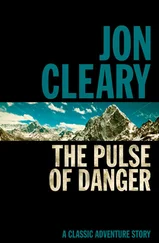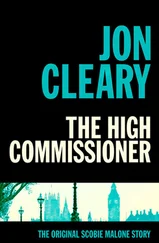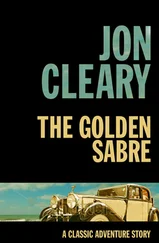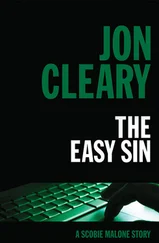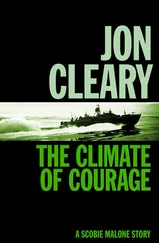‘I don’t see why it’s necessary,’ said Madame Timori, throwing cold water.
Malone ignored her. ‘Mr President, we have a lead on the man who tried to shoot you. We think it is Miguel Seville. He’s an Argentinian, one of the world’s leading terrorists. Maybe the leading one.’
Sun Lee had come out of the house to stand in the background just behind Timori’s chair. The rest of the Presidential encourage, the men, women and children who had spent last night in one of the immigrant hostels, had moved down from the front of the house and stood in a group in the shade of some trees, looking as if they wanted an audience of the President but were not game to ask. But Malone noticed that they were all suddenly still, as if they had heard what he had said, and behind Timori the private secretary seemed to stiffen.
Timori raised an eyebrow, but that was all. He was dressed in white slip-ons, white cotton slacks and a blue batik-patterned shirt: he could have taken his place on any of the cruising yachts out on the harbour or at any one of the barbecue picnics out in the suburbs. Except for his face: there was no holiday spirit there. He looked sick, older even than he had yesterday. Last night’s bullet hadn’t hit him, but he had read his name on it: it was unfortunate that poor Mohammed Masutir had had involuntary power of attorney.
‘Why would they hire a foreigner to kill me?’ He sounded affronted as well as puzzled: for all his corruption he was a true nationalist.
‘Perhaps it was the Americans,’ said his wife. ‘The CIA will hire anyone. Remember those Mafia they hired to try and kill Castro?’
‘But they were Americans,’ said Timori. ‘No, it wouldn’t be the CIA. President Fegan is my friend,’ he told Malone.
‘I’m sure he is, sir.’ Malone did not voice his truthful opinion, that in top politics there were no friends, only expendable partners. He could not believe that Timori had read no history. ‘Have you had any trouble from terrorists in Palucca?’
‘None,’ said Madame Timori. ‘I told you there were to be no political questions!’
Pull your head in, Delvina . But Malone’s voice was still mild: ‘It wasn’t meant to be political, Madame Timori. I’m just trying to build up a picture in my mind so that we can do something about catching this man Seville before he makes another attempt on the President’s life.’
‘You think he’ll do that?’ Timori had a soft silky voice; now it was just a whisper. ‘What sort of protection can you give me?’
‘I can give you none, sir. That’s up to the Federal Police and our Special Branch.’
‘What do you do, then?’ Madame Timori’s voice was neither silky nor a whisper. Over under the trees the group was leaning forward, ears strained.
‘I’m afraid we’re always called in too late to prevent anything. That’s why we’re called Homicide – after the crime that’s been committed.’
‘Homicide? I thought you fellers had finished here?’
Malone turned his head as the newcomer passed him, shook hands with Timori, then kissed Madame Timori on her upturned cheek. He was a barrel of a man, a mixture of muscle and fat, dressed in blue slacks and shirt and a raw silk jacket. Amongst all the sartorial elegance on this terrace – even Sun Lee looked like an advertisement for one of Hong Kong’s best tailors – Malone felt like someone who had just stepped out of a St Vincent de Paul store.
‘I’m Russell Hickbed.’ He was the sort of man who would never wait for someone else to introduce him. His broad, blunt-featured face had no smile for Malone; the pale-blue eyes behind the horn-rimmed glasses held no hint of friendliness. ‘You’re –?’
‘Inspector Malone.’ Malone didn’t stand up or offer his hand. He sensed at once that only by remaining seated was he going to keep control of this interview with Timori.
‘Well, didn’t you get the message, Inspector?’
Malone had never met Hickbed before but he had seen him on television, on Four Corners, Sixty Minutes and on the Carleton-Walsh show. Always laying down the law on the economic situation, on foreign policy, on equal rights: he was a nineteenth-century mind who shamelessly used a twentieth-century medium to preach his arch-conservative message. He had made his fortune in Western Australia in the construction business and the resources boom, then come East to take on the Establishments of Sydney and Melbourne and, according to his own estimate, beaten them to a pulp. Other Sandgropers, as Western Australians were called, had done the same, with varying degrees of success. The others still kept their bases in Perth, the Western capital, as if needing the moral, or immoral, support of their fellow millionaires; but Hickbed, folding his mansion tent on the Swan River, had settled in Sydney, buying an even bigger mansion on the shores of the harbour. Nobody knew how much he was worth, but if he lost a million or two on Monday he had usually recouped it by Tuesday. He had the rich man’s magnetism for money.
‘What message was that?’ He’s expecting me to be a mug copper, so I’ll be one .
Hickbed looked at the Timoris. The President seemed uninterested; but the First Lady was tense and angry. ‘The police here seem to be a law to themselves!’
Hickbed took off his glasses and wiped them; somehow his face looked blank and less aggressive without them. ‘Is that so, Inspector?’
‘Perhaps you should ask the Premier.’ Malone knew that Hickbed and The Dutchman were enemies who would cross an ocean to avoid each other. ‘The politicians make the laws in this State.’
‘This has nothing to do with the Premier or New South Wales.’
‘I’m afraid you don’t know the law, Mr Hickbed. Homicide is a State offence, not a Federal one. I think it has something to do with States’ rights.’
Hickbed recognized the barb. Before he had come out of the West he had been one of the nation’s most vociferous advocates of States’ rights. Then he had finally realized the real power would always remain in Canberra. That was when he had become leader of the kitchen cabinet that had taken charge of Phil Norval.
He put his glasses back on, looked threatening. ‘You’re making trouble for yourself, Inspector.’
Malone looked at him, then at Madame Timori, finally at the President. The latter might appear uninterested, but it struck Malone that he had missed nothing of the exchange between himself and Hickbed.
‘They warned me of that the first day I put on a uniform. A policeman’s lot …’
But Hickbed had never listened to Gilbert and Sullivan. ‘You’re a pretty uppity policeman, aren’t you?’
Malone put away his notebook and stood up. ‘It must be the surroundings. I was once in the Mayor’s mansion in New York – I got a bit light-headed there, too. I must be more ambitious than I thought.’
‘Oh, you’re that Malone!’ Hickbed looked at him with new interest, if no more respect. ‘The one whose wife was kidnapped or something with the Mayor of New York?’
‘With the Mayor’s wife, actually.’ Malone turned away from Hickbed; he also turned away from Madame Timori. ‘I’m not giving up on the case, Mr President. I’d still like to nail this feller Seville before he tries to kill you again.’
Timori stood up, getting out of his chair with the stiff movements of an old man. But his eyes seemed to have come alive; he put out his hand to shake Malone’s and his grip was firm. He smiled, a gold tooth that Malone hadn’t seen before all at once suggesting the raffish look he once must have had. He’s a bastard, Malone thought, corrupt as a rotten mango. But you might find yourself liking him.
Читать дальше





